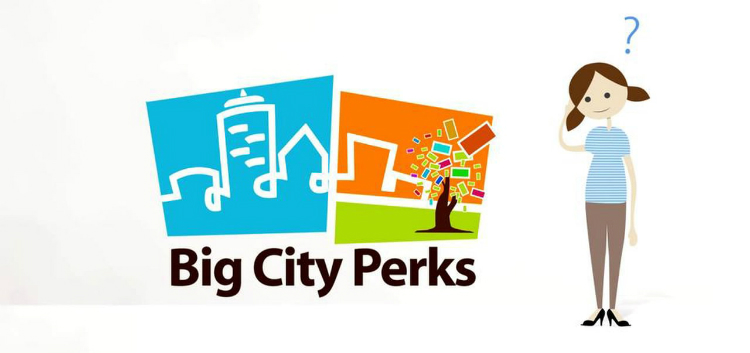Now, let’s face it: a strong headline isn’t always necessary. If your post is very valuable and important, if your niche is super narrow or if you already have an audience that is big and loyal, and willing to share your posts – you can get away with any headline.
But even then it would be better to create a strong one. After all, why settle with the existing audience when you can attract more people?
And while a headline isn’t the only way to do that, crafting a catchy and impressive one definitely won’t hurt.
So, in the end, it doesn’t matter, whether you are an experienced blogger or a beginner one – learning how to make your headlines good will benefit you either way. It could help you make any post interesting, whether you’re writing a very useful one or crafting a personal one about a certain life update.
And here are some tips that could help you make your headlines more catchy and appealing.
1. Create a working title first
Unless you are an experienced blogger, who’d been doing this for a while already, crafting a strong headline immediately simply won’t be possible for you. However, crafting at least some headline definitely could help.
Therefore, start with creating a working title. Be careful not to confuse it with the topic of your post: it’s not about the post’s main idea. A working title has to be specific and related to this post only. It probably won’t be long or impressive – but that’s okay: you’ll change that later.
However, it will become your starting point – an idea already formulated in words, which you will polish later.
Let’s come up with some examples. If you’re running a blog dedicated to writing and your post’s topic is «finding a writing inspiration», here’s how some of your working titles might look like:
«How Changing Your Lifestyle Can Make You More Inspired»
«5 Exercises To Boost Inspiration»
«What To Do When You Don’t Feel Inspired But Still Need To Write».
2. Keep in mind that there are some mistakes to avoid
One of the easiest ways to learn how to do something right is by learning what not to do. Even if your headlines aren’t strong, they will still be okay if you avoid the following mistakes.
a. Click-baiting
Sure, a headline that stuns and amazes the audience will encourage people to click on it. But it will work right only if the content matches it.
There are plenty of writers and other content-makers that try to catch the audience’s attention with the help of click-baiting. They craft impressive headlines that are simply irresistible not to click on – as they promise an instant solution of a complex problem, a certain mystery uncovered, and so on. But when the readers click on such headlines, they see either see a content not related to a headline at all or a brief mention sounding like «Want to know how to lose 20 pounds in three days? I would want it too. But that’s not the point as in this article I’m going to talk about how to pick gym clothes».
Would you be frustrated with it? Probably yes. Frustrated at best – and maybe you would even get furious and accuse the blogger of betraying your trust.
And you would still be right as click-baiting is indeed betraying your audience’s trust. While it’s okay to craft headlines that promise «amazing solutions», you should make sure that you do offer these solutions, and that they are indeed amazing.
For example, here’s how a clickbait for a blog on writing could look like:
«The One And Only Way To Write A Bestselling Book»
And here’s how a proper headline could look like:
«10 Tips For Those Who Want To Write A Bestselling Book».
b. Not being specific.
Just like we’ve already mentioned above, a strong piece of content is supposed to meet the needs of your audience. This means that your headline needs to clearly show which kind of information people will get from reading your article.
But writers often misunderstand the meaning of «clearly», crafting headlines that are specific in some way – but sadly not specific enough for the audience.
Always make sure that your headline cannot be misinterpreted. For example, a headline called «10 Amazing Design Tips» is indeed not specific enough. Which area of design author is talking about – digital design, home design, fashion design? Who knows.
«10 Amazing Tips For Designing Better Logos» is specific enough. Not only it clearly hints the area of design and the type of design – it also shows that the article is meant for those who design logos and not for those who order logos for their companies or brands, for example.
3. Include the right keywords in the headline
Including keywords in the headline is very important for SEO – but not for SEO only. It’s also a quick and easy way to help the readers understand what to expect from your article.
So if you use keywords, you basically kill two birds with one stone – boost your SEO and build up an audience at the same time. However, you should pick them and use them in a smart way.
Keep in mind that keywords do matter for search engines. However, if you overstuff your headline with keywords or won’t use them naturally, this might not benefit your blog. Sure, the audience will find your article – but will it click on it if it looks too SEO-oriented and not appealing at all?
So be careful here. Choose the right keywords (Google Keyword Planner could help you with that) and make sure they fit in the headline naturally.
Also, remember that you don’t need to use too many keywords. Even one or two would be enough. The best option would be picking only one keyword – but a long one. Such keyword would be more specific and so would be ranked better.
Let’s move on to the examples.
For example, your keyword for a writing blog could be «process and analysis essay topics» while your keyword for a design one could be «vintage calligraphy for T-shirts». Putting them into a headline won’t be a big challenge – and it would benefit you a lot.
4. Always offer perks and state them clearly
So your headline might not be a click-bait, might contain the right keywords – and still fail to persuade the audience to click on it. Often this happens because it simply doesn’t offer any clear perks to the readers.
The thing is people see too much different content every day – and obviously have no time to read it all. However, even the most people would click on a headline if they believed this content could improve their lives in some way: by giving them some useful information, by teaching them something, by giving them a review or an opinion, etc.
Therefore, you should clearly explain how would they benefit from reading your post.
Here’s an example of a headline that doesn’t offer any benefit:
«Young Adult Books About People Who Change Their Lives»
And here’s the one that does offer a clear benefit:
«These Young Adult Books Can Help You Change Your Life».
5. Show your audience what type of post are you offering
Being a blogger, you know that there are different types of posts – but your audience doesn’t always know that (and even if they do, they still might fail to predict, which post are you offering them now). People, however, like when they know what to expect of you – so you’d better give them a hint on that.
You can do so by following simple rules while crafting a headline:
- add a «How To» before stating the topic of your post;
- add «Ways To» before stating the topic of your post;
- add «X Tips To» before stating the topic of your post;
- add «The Ultimate/Detailed/Amazing Guide» before stating the topic of your post;
- add «Resources on» before stating the topic of your post;
- name the post «Weekly/Monthly/Daily (the topic of your post) Inspiration».
Of course, these aren’t the only ways to hint a type of post and they aren’t a template you must follow strictly. However, they could help at first – before you learn to come up with such hints on your own.
The art of headline writing might be tricky to master – but it isn’t impossible in any case. There are plenty of tools that could help you check the effectiveness of your headline and even more tips on headline writing you might want to follow. However, despite how many resources are there to help you, the best way to learn how to craft compelling headlines is by writing a lot of them and by measuring their effectiveness on real examples.
In other words, though you might use some tools to aid you, you should still pay attention to the way your audience reacts to your headlines. Do some of them get clicked on more often than the others? Do posts with certain headlines get shared more often?
Keep in mind that no tool would be able to tell you how to make your headlines the most compelling to your audience specifically. The audience, however, could help you a lot.
Author Bio: Christina Battons is a creative writer and content strategist from LA. Currently, She writes for various sites. Her posts address the topics about self-education, writing, motivation, professional development. In her spare time, she prefers to read novels and crime thriller stories. Feel free to follow her on @battonschristi to ask questions or see her works.










Excellent article… thanks! A needful skill that relates directly to crafting subject lines for email marketing also… You gave me pause to the fact I should put some consideration into my headlines beyond the placement of a keyword or two. I love the juxtaposition of intent in your #4 perk based suggestion, subtle – but sharp.